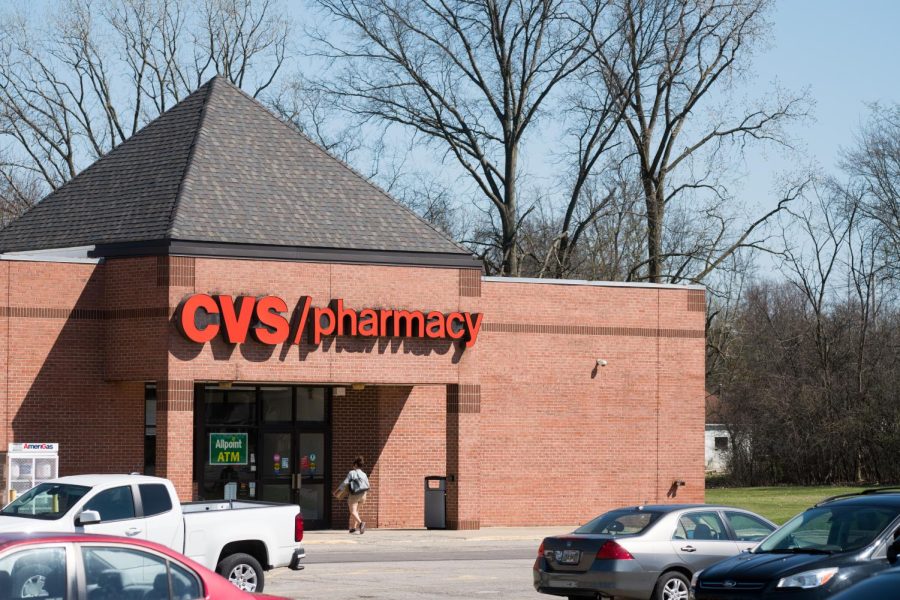City Council Opts In to National Settlement With Pharmaceutical Distributors, Manufacturers
Producers and distributors of opioids are involved in the 2022 settlement.
The Oberlin City Council approved an ordinance on April 3 that will allow the City of Oberlin to receive financial compensation from a 2022 national settlement in relation to the opioid epidemic. Several corporations from the settlement that were accused of irresponsible practices which furthered the crisis in the United States will be paying at most $21 billion in total to states and subdivisions who opt in.
All participating states and subdivisions are required to use at least 85 percent of the funds to abate or reduce the impacts of the opioid epidemic through approved strategies, which are outlined in the settlement. Approved strategies include the training of first responders to use substances approved by the Food and Drug Administration for reversing opioid overdoses, the funding of evidence-based prevention programs in schools, and the collection of data to measure the effectiveness of these abatement strategies within the state.
Jon Clark, law director for the City of Oberlin, reminded the City Council of OneOhio, a previous settlement that Oberlin opted into in 2021 involving companies that produced and distributed opioids. These are distinct settlements and the differences between them were explained by Clark during the City Council meeting.
“Council may recall that, in 2021, an agreement titled OneOhio was authorized to settle a number of lawsuits brought by manufacturers of opioids,” Clark said. “Those funds are now being distributed. This new settlement is substantially the same as OneOhio, although it is separate. It involves two additional manufacturers, Teva and Allergen, as well as three distributors: CVS, Walgreens, and Walmart.”
Thousands of lawsuits have been filed against the corporations who aided in the production and distribution of opioids, beginning with the Santa Clara County Counsel’s 2014 lawsuit against Purdue Pharmaceuticals and other distributors.
The City of Oberlin filed a lawsuit in 2020 against Purdue Pharmaceuticals, a company that manufactured the drug and had declared bankruptcy in 2019. Linda Slocum, president of City Council at the time of the lawsuit, said that the community was financially damaged by the crisis and wanted to recoup the money that was spent on the prevention of overdoses by first responders and on providing responders with medications used to reverse opioid overdoses.
“The epidemic has a price tag on communities,” Slocum said in an interview with the Medina Gazette. “We want to make sure we have our fair share for what it has cost our local communities.”
Ohio was one of the first states to file against pharmaceutical companies, doing so in 2017. Governor Mike DeWine, who was attorney general at the time, alleged that the corporations were irresponsibly flooding Ohio’s market with opioids.
“We believe the evidence will show that these companies ignored their duties as drug distributors to ensure that opioids were not being diverted for improper use,” DeWine said. “They knew the amount of opioids allowed to flow into Ohio far exceeded what could be consumed for medicallynecessary purposes, but they did nothing to stop it. And much like the drug manufacturers who continue to fail to do the right thing, these distributors are doing precious little to take responsibility for their actions and help pay for the damage they have caused.”
In 2021, a $26 billion national settlement was reached with the three largest opioid distributors — McKesson, Cardinal Health, and AmerisourceBergen — and the manufacturer Janssen Pharmaceuticals, a subsidiary company of Johnson & Johnson. In Ohio, the payments began the following year and local governments were given over $8.6 million to combat the spread of the opioid epidemic. Oberlin received $4,522.47 in the first year of OneOhio settlement payments.
The 2022 settlement added three pharmaceutical chains — CVS, Walgreens, and Walmart — and two producers — Allergan and Teva — and totaled $21 billion. Both of these settlements require states and local governments to opt in if they wish to receive funding. Despite the payments being made to compensate for the damage caused by the opioid epidemic, none of the corporations themselves are required by either settlement to acknowledge legal wrongdoing on their part.
“While the companies continue to strongly dispute the allegations made against them, they believe that the implementation of this settlement is a key milestone toward achieving broad resolution of governmental opioid claims and delivering meaningful relief to communities across the United States that have been impacted by the opioid epidemic,” a 2022 statement by AmerisourceBergen, Cardinal Health, and McKesson read.





